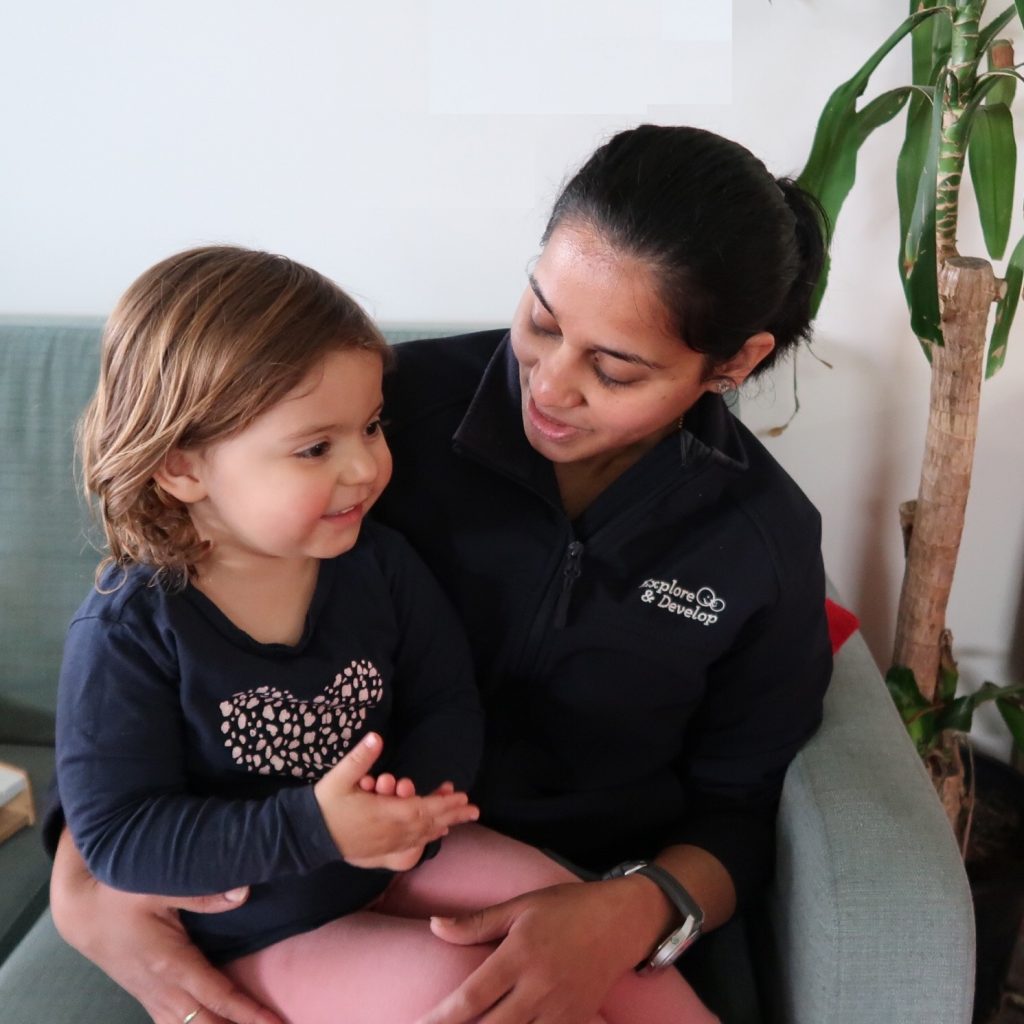
Through our last two journal entries, you have followed us on our journey towards respectful nappy changes and toilet learning. Now it’s time for us to reflect on what we’ve learnt and wonder where our knowledge will take us in the future. Overwhelmingly, we feel it’s the words we have decided to use that have made the most impact on our practice. Looking back, we see how changing our language has altered our mindset and behaviour.
Language is vital; words convey meaning. We believe that the words we use to express ourselves with children make a difference. Every day, across the world, people choose the words they use. They also choose the words they don’t use, and as a society, this is something we are becoming more conscious and aware of.
“Words are singularly the most powerful force available to humanity. We can choose to use this force constructively with words of encouragement, or destructively using words of despair. Words have energy and power with the ability to help, to heal, to hinder, to hurt, to harm, to humiliate and to humble”.
— Yehuda Berg
This got us thinking. One of the biggest challenges we have come across recently with toilet learning children in a group environment, is a feeling of inadequacy amongst those children still wearing nappies. This has been brought on by comments, from their peers, such as this: “I wear undies ‘cos I’m a big girl”.
But what does being a ‘big girl’ or ‘big boy’ really mean? And where does this phrase stem from?
To paraphrase one of the dads in our service – teachers like to use fancy words. So, let’s ‘deconstruct’ what these children are saying, what they are not saying (what is implied), where it possibly originated, and why.
Firstly, this statement is one of pure joy and pride. The child marvels at their own ability to master yet another step in this thing called life and wants to share their success with the world! They have found a new facet to their identity, which should be celebrated! Unfortunately, we have observed that in a group setting, this language that the children are using to express themselves has hidden meaning, which becomes more problematic as the children grow older and become more socially aware.
When a child announces: “I wear undies ‘cos I’m a big boy”, the unintended message to the other child in the room (wearing a nappy) is: “You don’t wear undies ‘cos you’re not a big boy”. We’ve observed the impact this statement has on children in our space – it is more than just a throw away phrase. From the way children react in the moment and the feedback we receive from families later, hearing those words from your peer feels like you’re being told you are incapable, needy, and lesser.
So how do children learn to use this type of language? Adults.
“The way we talk to our children becomes their inner voice.”
— Peggy O’Mara
As we said earlier, the words we use to express ourselves make a difference and we need to become more conscious and aware of the way that we talk with our children. We need to ask ourselves that tricky question: ‘why’. Why am I saying this? Why am I choosing to phrase my thinking in this particular way?
If the answer is out of habit ‘because, that’s the way it’s always been done’ or ‘because that’s the way I was brought up and I turned out alright’ then it’s time to stop and think – how could we change our vocabulary and start saying what we actually mean.
The reality is, we have a choice. We choose how we talk with our children, so it’s important to reflect on the intention behind what we say.
When we offer praise, are we doing it to empower them, or to coerce them?
Do we say: “You can do it because you’re a big girl”
Meaning: “You can do it because I know how capable you are, and I believe in you”
Or do we say: “You’re a big girl and big girls don’t wear nappies”
Meaning: “If you don’t wear undies then you’ve failed to live up to my expectations”
I know that sounds heavy, and you’re probably thinking – stop projecting your adult thoughts onto a child’s mind – but stop for a moment and think about it: why don’t we just say what we mean? And if we did, wouldn’t we immediately realise the implications of the words we choose to use?
The reality is, that there IS a way to celebrate with our children without passing judgement. There IS a way to motivate them without perpetuating stereotypes. We CAN use language that helps children understand what they are learning. As we have explained in each of our posts on this topic, all this CAN be achieved.
Through respectful relationships.
Through reciprocal interactions.
“When we perceive our infants as capable, intelligent, responsive people ready to participate in life…then we find that they are all of those things.”
— Janet Lansbury